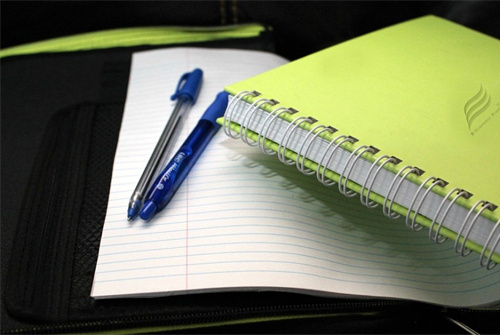表達(dá)要多說(shuō)多練的英語(yǔ)句子

【第1句】: 多背多聽多記多說(shuō)多練用英語(yǔ)怎么說(shuō)
多背多聽多記多說(shuō)多練的英文:Recite more, listen more, remember more, speak more and practice more
more 讀法 英 [m??] 美 [m?r]
【第1句】:adv. 更多;此外;更大程度地
例句:
Prison conditions have become more brutal.
監(jiān)獄的條件已經(jīng)變得更加嚴(yán)酷。
【第2句】:adj. 更多的;附加的
例句:
We stayed in Danville two more days.
我們?cè)诘ぞS爾多呆了兩天。
【第3句】:pron. 更多的數(shù)量
例句:
Oxfam has appealed to western nations to do more to help the refugees.
牛津饑荒救濟(jì)委員會(huì)已經(jīng)呼吁西方國(guó)家采取更多的措施來(lái)幫助這些難民。
擴(kuò)展資料
一、more的用法:
【第1句】:在表示兩者中“較…一個(gè)”時(shí), more前要加定冠詞。
【第2句】:more可單獨(dú)用作插入語(yǔ),在含意上接近于what's more,也可在動(dòng)詞后單獨(dú)使用。
【第3句】:more than結(jié)構(gòu)后可接數(shù)詞,表示在數(shù)量上“超過(guò)”某種程度,此時(shí)可接含有can的從句,表示否定; 也可接形容詞、副詞或動(dòng)詞,表示程度,意為“非常”;
【第4句】:more than還可接名詞或動(dòng)詞等,意為“不只是”,此時(shí),可用more than one在句中修飾主語(yǔ),盡管從意義上看是復(fù)數(shù)內(nèi)容,但句子的謂語(yǔ)動(dòng)詞應(yīng)用單數(shù)形式,但如果以more than one直接充當(dāng)主語(yǔ),謂語(yǔ)動(dòng)詞可是單數(shù),也可是復(fù);
如果“more+復(fù)數(shù)名詞+than one”作主語(yǔ)時(shí),謂語(yǔ)動(dòng)詞應(yīng)用復(fù)數(shù)。
二、more的詞匯搭配:
【第1句】:one more 再來(lái)一個(gè);再多一個(gè)
【第2句】:far more 許多,多得多的
【第3句】:pay more attention to 更加注意
【第4句】:for more information 需要更多信息;取得進(jìn)一步資訊
【第5句】:some more 再來(lái)一些,再多一點(diǎn)
【第2句】: 學(xué)習(xí)外語(yǔ)時(shí)要多說(shuō),多練才能使自己進(jìn)步得
要想學(xué)好英語(yǔ),就得有股子韌勁兒。
學(xué)過(guò)的生詞和句子一定要記住,真正掌握它,千萬(wàn)別把希望只放在考前的突擊記憶上。期中、期末考試時(shí),成百上千的單詞怎么能一下子背下來(lái)呢?所以,記單詞一定要日積月累,備一個(gè)小本兒隨身攜帶就更好。
比如今天學(xué)了10個(gè)單詞,記住了7個(gè),其余3個(gè)怎么也記不住,這時(shí)你就可以把它們記到小本子上。小本子隨身帶,有空你就掏出來(lái),看它幾眼,說(shuō)它幾遍。
看的次數(shù)多了,說(shuō)的次數(shù)多了,再難記的單詞也能記住。當(dāng)然,記生詞最好連句子一塊記效果更好,這樣記得牢。
通過(guò)句子記新單詞,不但擴(kuò)大了詞匯量,而且還記了單詞的用法,真是一舉兩得。
【第3句】: 求三十個(gè)簡(jiǎn)短的英語(yǔ)好句子(不要有太深的哲理,比較好的句子就行)
【第1句】: Waste not,want not. 儉以防匱.【第2句】: From saving comes having. 富有來(lái)自節(jié)儉.【第3句】: A penny saved is a penny gained. 省一文是一文.【第4句】: Take care of the pence and the pound will take care of themselves.金錢積少便成多.【第5句】: Frugality is an estate alone.節(jié)儉本身就是一宗財(cái)產(chǎn).【第6句】: He that regards not a penny,will lavish a pound.小錢不知節(jié)省,大錢將濫花.【第7句】: Small gains bring great wealth.積小利,成巨富.【第8句】: Many a little makes a mickle. 積少便成多.【第9句】: As the touchstone tries gold,so gold tries man. 試金之石可試金,正如黃金能試人.【第10句】:Courage and resolution are the spirit and soul of virtue. 勇敢和堅(jiān)決是美德的靈魂.【第11句】:The path to glory is always rugged. 光榮之路常坎坷.【第12句】:Nothing is difficult to the man who will try. 世上無(wú)難事,只要人肯試.【第13句】:The fire is the test of gold;adversity of strong man. 烈火試真金,困苦煉壯士.【第14句】:Great hopes make great man. 遠(yuǎn)大的希望造就偉大的人物.【第15句】:No way is impossible to courage. 勇士面前無(wú)險(xiǎn)路.【第16句】:A smooth sea never made a skillful mariner. 平靜的大海決不能造就出熟練的水手.【第17句】:The good seaman is known in bad weather. 壞天氣下才能識(shí)得出良好的海員;要識(shí)好海員,須憑 壞天氣.【第18句】:The best hearts are always the bravest. 行為最勇敢的人心地總是最善良.【第19句】:We must not lie down,and cry,God help us. 求神不如求己.【第20句】:He that falls today may be up again tomorrow. 今天跌倒的人也許明天就會(huì)站起.【第21句】:Rome was not built in a day. 羅馬并非一日可建成;堅(jiān)持必成.【第22句】:Success belongs to the persevering. 勝利屬于堅(jiān)忍不拔的人.【第23句】:We must repeat a thousand and one times that perseverance is the only road to success. 我們要多次重申:不屈不撓是取得勝利的唯一道路.【第24句】:Perseverance is failing nineteen times and succeeding the twentieth. 十九次失敗,到第二十次獲得成功,這就叫堅(jiān)持.【第25句】:Step by step the ladder is ascended. 登梯需要逐級(jí)登.【第26句】:Adversity leads to prosperity. 困苦通向昌盛.【第27句】:Patience and application will carry us through. 忍耐和專心會(huì)使我們度過(guò)難關(guān).【第28句】:Fortune often rewards with interest those that have patience to wait for her.做事只要有耐心,到頭總會(huì)有好運(yùn);耐心候好運(yùn),好 運(yùn)常會(huì)來(lái).【第29句】:All things will come round to him who will but wait.只要肯等待,一切都會(huì)按時(shí)來(lái).【第30句】:Constant dropping wears the stone. 滴水不絕可穿石.【第31句】:Omelets are not made without breaking of eggs. 雞蛋不打破,蛋卷做不成;不甘愿吃苦,則預(yù)期效果 達(dá)不到.【第32句】:The world is a ladder for some to go up and others to go down. 世界好似一把梯,有人上去有人下.【第33句】:There needs a long apprenticeship to understand the mystery of the world's trade. 要知世事奧秘多,須要長(zhǎng)期作學(xué)徒.【第34句】:Life is sweet. 生活是可愛的;人無(wú)不好生(惡死).【第35句】:Where there is life,there is hope. 生命不息,希望長(zhǎng)在.【第36句】:Life is not all beer and skittles. 人生并不全是吃喝玩樂.【第37句】:Much water runs by the mill that the miller knows not of. 眼前發(fā)生許多事,有些我們并不知.【第38句】:Fortune knocks once at least at every man's door.人人都有走運(yùn)的一天.【第39句】:If you are too fortunate,you will not know yourself; if you are too unfortunate,nobody will know you. 運(yùn)氣太好,見人不睬;運(yùn)氣太壞,無(wú)人理會(huì).【第40句】:Every man is the architect of his own fortune. 每一個(gè)人都是自身幸福的建筑師.【第41句】:Happy is he who knows his follies in his youth. 記得年輕時(shí)所作蠢事的人是幸福的.【第42句】:Misfortunes never (seldom) come alone (single). 禍不單行.【第43句】:Misfortune is a good teacher. 不幸是良好的教師.【第44句】:Misfortunes come at night. 禍常生于不測(cè).【第45句】:Misfortunes tell us what fortune is. 惡運(yùn)臨頭后,才知幸運(yùn)貴.【第46句】:Adversity makes a man wise,not rich. 患難能使人聰明,但不能使人富有.【第47句】:Live and learn. 活到老,學(xué)到老.【第48句】:It is never too old to learn. 為學(xué)不怕年高.【第49句】:A man becomes learned by asking questions. 要長(zhǎng)學(xué)問,就得多問;多問則業(yè)精.【第50句】:There is no royal road to learning. 學(xué)問無(wú)坦途.【第51句】:He who is ashamed of asking is ashamed of learning. 畏問之人恥于學(xué).【第52句】:What is learned in the cradle lasts till the grave. 嬰孩時(shí)期學(xué)到的東西,老死不會(huì)忘記.【第53句】:Learning makes a good man better and ill man worse. 知識(shí)能使好人更好,壞人更壞.【第54句】:Soon learnt,soon forgotten. 學(xué)得快,忘得快.【第55句】:Learn young,learn fair. 為學(xué)趁年青,既學(xué)須學(xué)好.【第56句】:A lazy youth,a lousy age. 少時(shí)懶惰老來(lái)苦.【第57句】:He that knows nothing,doubts nothing. 無(wú)知即無(wú)疑.【第58句】:A good name keeps its luster in the dark. 良好的名聲在黑暗中也能閃閃發(fā)光.【第59句】:Fame is a magnifying glass. 名譽(yù)是放大鏡.【第60句】:A good fame is better than a good face. 美名勝于美貌.【第61句】:Fame like a river is narrowest at its source and broadest afar off. 名譽(yù)如河流,發(fā)源處最狹,愈遠(yuǎn)愈寬廣.【第62句】:Take honour from me and my life is done. 沒有名譽(yù),就沒有了生命.【第63句】:Beware of him who regards not his reputation. 要謹(jǐn)防不重名譽(yù)的人.【第64句】:It is better to die with honour than 。









